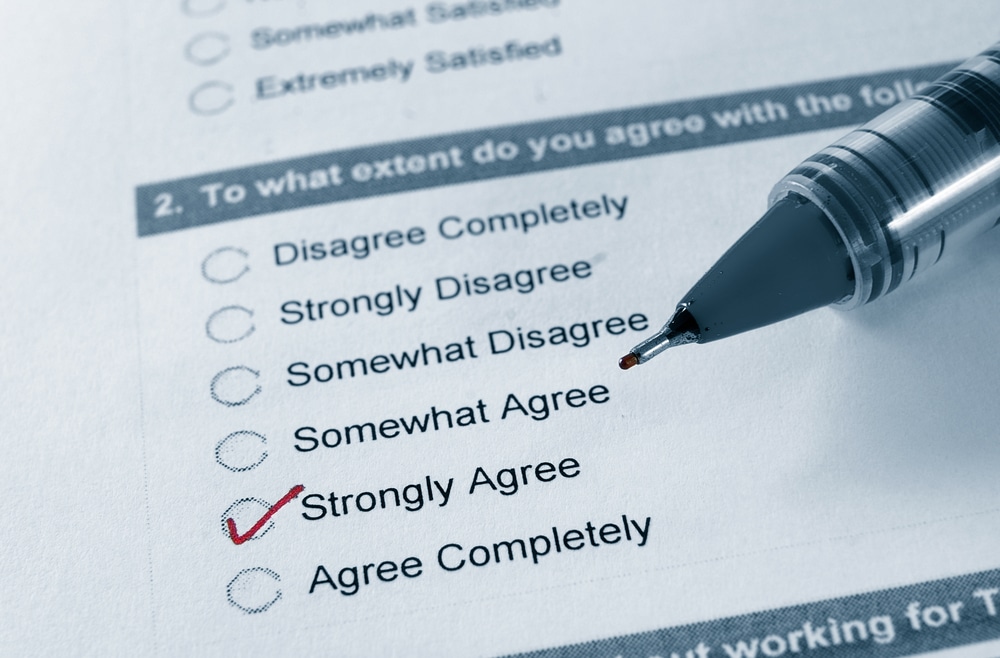Jasmine Birtles
Your money-making expert. Financial journalist, TV and radio personality.


Whether you are a big fan of politics or not, we all have our own opinions and beliefs.
Some people prefer to take a backseat, watching from afar and visiting the polling stations every few years to cast their votes. Other people, however, are pros in politics. It may be keeping up to date on all things political, becoming a member of your preferred party or attending rallies.
Whatever your level of interest or involvement in politics, you are able to earn money from your political opinions. From selling merchandise to completing surveys, there are plenty of ways to use your knowledge and political point of view.

If you are a keen writer, or feel you have much to say about politics, writing a blog is an excellent way to make money from your political opinion.
You may be passionate about a particular party and want to advocate for them and their policies through writing. You may even wish to write in a journalistic style, keeping your readers up to date on the latest news.
On the other hand, you may have a general love for politics and use your platform as a central hub to inform. This could include updates, changes and news from parties and central government.
Nowadays, it is very easy to start your own blog. There are multiple free websites that allow you to set up and design your blog. WordPress is one of the most popular blogging websites, giving you all the tools you may need to create unique and engaging content.
Wix and Squarespace are also very useful sites. Wix provides stunning templates which allow you to create your own professional blog, as well as obtaining your own custom domain name. Squarespace also offers thousands of customisable templates for your blog, and provides expert tools to help you manage your website like a pro.
Firstly, choose a niche for your blog. What exactly are you going to focus on? Are you going to support and give updates on your preferred party? Are you going to focus on a particular topic, and the politics surrounding it? For example, you may choose to blog about something you feel passionately about, such as global warming, women’s rights or Brexit. From this, you could follow the movement and discuss the policies and political responses to these.
Often more controversial topics will get you the most engagement – people love to have their say! Develop your own voice and decide what kind of blog you’re going to be. Is your blog going to be satirical and snarky? Is it going to be in-depth, gentle and open to feedback? If readers like your style, they’ll keep coming back for more.
Once you’ve chosen your niche, it’s a good idea to name your blog. Something catchy or using play on words may help to encourage readers and generate traffic to your blog. Then, you can create and customise your blog, before beginning to write and publish your blog content.
Don’t forget to promote your blog. Social media allows for huge political discussions between thousands of people, and Twitter in particular has a huge audience for all things politics (for better or for worse!). If your friends and family have an interest in politics also, or have similar political views to you, share it with them to get the ball rolling.
When your blog begins to generate a strong readership, you can monetise it. You can sign up to sites such as Google Adsense, which target your site with relevant advertising. It’s also useful to get involved with affiliate marketing and sponsorships to generate revenue. Crowdfunding is also an option for your website, asking for donations for your readers to support your website.
You can read our tips on how to make money from blogging here.

Whether it’s a march, demonstration or protest, some political events attract hundreds of thousands of attendees. Recently, the Freedom March, which happened at the end of June in Central London, attracted an estimated 1.7 million people. That’s a staggering number of potential customers!
There are endless items you can sell at protests and rallies. T-shirts, flags and whistles are popular, but any form of noisemakers, even smoke flares, are big sellers. Not forgetting bottles of water – a lot of people are bound to get thirsty whilst walking.
The t-shirts and flags you sell may have particular slogans or symbols on them relevant to the event. Do your research before the event to see popular sayings and logos that may be big sellers. Noisemakers, such as whistles or horns are popular too, and can generate a large profit.
It’s also a good idea to invest in a form of contactless payment, as people don’t always have cash on them nowadays.
We recently published an in-depth article on how to sell political merchandise, with all the information and tools you need to get started. You can read it here.
You could even incorporate this with setting up your own blog. Why not set-up an e-shop on your blog and sell merchandise through your site?

There are survey websites out there that will pay you for your political views. The largest and most popular site of this kind is YouGov. YouGov is an international research and analytics group, with a mission to supply continuous and accurate data to governments and institutes.
YouGov sends paid surveys via email, which offer rewards of up to 50 points per survey. Occasionally, longer surveys may offer even more! Once you have reached 5,000 points, you can exchange them for £50 cash or a gift card. Although 5,000 points may seem like a large amount, YouGov send surveys so regularly that they tot up much faster than you think. Additionally, the surveys are interesting, and it is enjoyable to give your opinions on topics that truly matter.
Surveys take anywhere from two to 30 minutes to complete. You will be advised on how long the survey is likely to take before you do it.
There are hundreds of other survey sites which invite you to give your opinion on a multitude of topics, including politics. Here are some of our favourite survey sites:
Read our article on how to make money from online surveys here.

If you really know your stuff, and have a real passion for politics, you may think about becoming a freelance political consultant.
Political consulting consists mainly of advising and assisting in political campaigns. Political consultants act as specialists in public relations. They use different forms of media, such as advertising and press releases, with the goal of making voters and the public aware of a party’s platform.
There are many freelance platforms you can use to promote your advisory skills. Upwork is a work marketplace where you can advertise your freelance services. Not only can people find you directly, but you can search job advertisements and offer your services to those wanting to hire someone with your skills.
Many consultants charge anywhere from £21.95 to a whopping £131 an hour. How much people are willing to pay for your services will depend on your experience and any relevant qualifications.
You may also become a consultant who uses political views and knowledge to inform investors on steps to take depending on changes in the stock market. According to xtb.com, politics can influence the way people invest through changes to central bank policy and market stabilisations. Similarly, the result of a general election can drastically influence how people invest and what they choose to invest in.
Therefore, if you’re an expert in politics and keep up to date with the latest trends and changes, you are useful to investors everywhere. You will be able to give information on how changing policies may impact the market, and direct people to make choices that are likely to benefit them.
Again, you can advertise your services on various freelance work websites. People Per Hour matches you with potential clients within minutes. It allows you to build great relationships with your clients and network to expand your business. Similarly, Guru and Fiverr are popular sites to use. Prices people charge for their services are similar to political consultants, ranging from £20 to £150 an hour.
Just remember, the FCA are hot on exactly what constitutes investment ‘advice’ and ‘guidance’. If you’re giving out ‘advice’, which is a specific recommendation to buy or sell, for example, then you’ll need to be FCA regulated. If you’re just giving out ‘guidance’, which is generic information that gives people a clearer picture but isn’t specific to their circumstances, you won’t need to be FCA regulated. However, if you’re planning on making money this way it’s likely going to constitute ‘advice’, and even those offering ‘guidance’ can still be FCA regulated, which will help your credibility.
And even if you don’t want to try your hand at consulting, using your political knowledge in your own investing may come in very handy!
And there you have it, several ways you can make money from your political opinions. Let us know in the comments below how you get on.
Disclaimer: MoneyMagpie is not a licensed financial advisor and therefore information found here including opinions, commentary, suggestions or strategies are for informational, entertainment or educational purposes only. This should not be considered as financial advice. Anyone thinking of investing should conduct their own due diligence.

Very useful info.
Great idea indeed! Always get new and cool ideas about making money from your posts. Thanks for sharing.